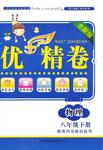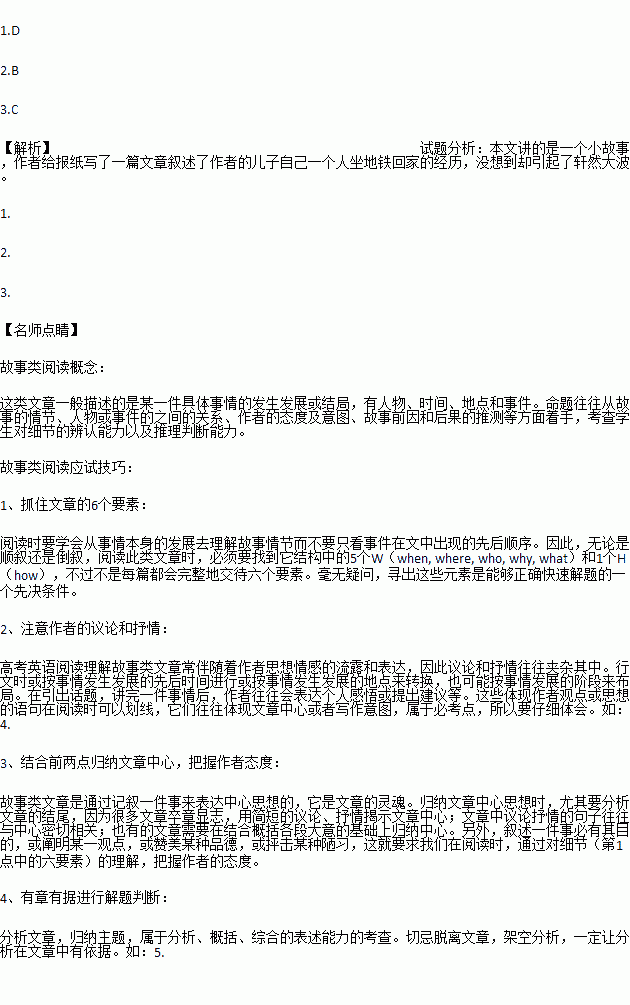题目内容
My son ,Izzy, was a nine-year-old boy and had been begging me to please let him find his way home by subway, by himself. After all, we live in New York City, and getting around by public transportation is a basic part of life. It is also the first step toward feeling grown-up. So on that sunny Sunday,I gave him a subway map, a transportation card,$20 for emergencies, and a couple of coins so that he could call me if necessary. I didn’t give him a cell phone because nine-year-olds lose things. A few days later, I wrote about his adventure,or non-adventure for a newspaper. Little did I realize the idea that a kid could tour the city on his own, and that a mom would let him, was big news. It turned out that many TV shows called me and asked for an interview. Bloggers were going crazy, so I started a blog, too, and letters came pouring in. Finally I found out why this was such a big story: we have become fearful for our children. Fear is hardly a new thing for parents, of course. But the fear of letting our children out of sight for even a second-that’s new. How did this happen? How did it become too scary to let kids be kids? I asked the question when the reporter Trevor Butterworth interviewed me.
“News reports,” he answered. “News reports scare the pants off you. What is scarier than a kidnapped kid no matter how far away?Because there are so many such stories, it starts to feel as if kidnappings are happening all the time. That’s why the kid-on-the-subway story surprises the whole world.” Izzy probably did a good job. He simply proved that kids could leave home alone and return home safely! But he didn’t think it was a big deal. “It was fun,” he said. “But I missed some classes because of the interviews.” Sometimes it really pays to be brave.
1.Why did the author let her son take the subway alone?
A. Because she always let her son do whatever he wanted.
B. Because she believed that her son had memorized the subway map.
C. Because she thought it would be big news around the whole world.
D. Because she felt traveling by subway in New York was a basic life skill.
2.The author gave her son all the following when he traveled alone EXCEPT_______.
A. a map. B. a cell phone.
C. a transportation card D. some money.
3.The author didn’t expect that after she wrote her son’s story for a newspaper, _________.
A. a blog would be started in her name
B. her son would receive so many letters
C. many TV shows would want to interview her
D. many TV stations would want to film her son’s story
 优加精卷系列答案
优加精卷系列答案
